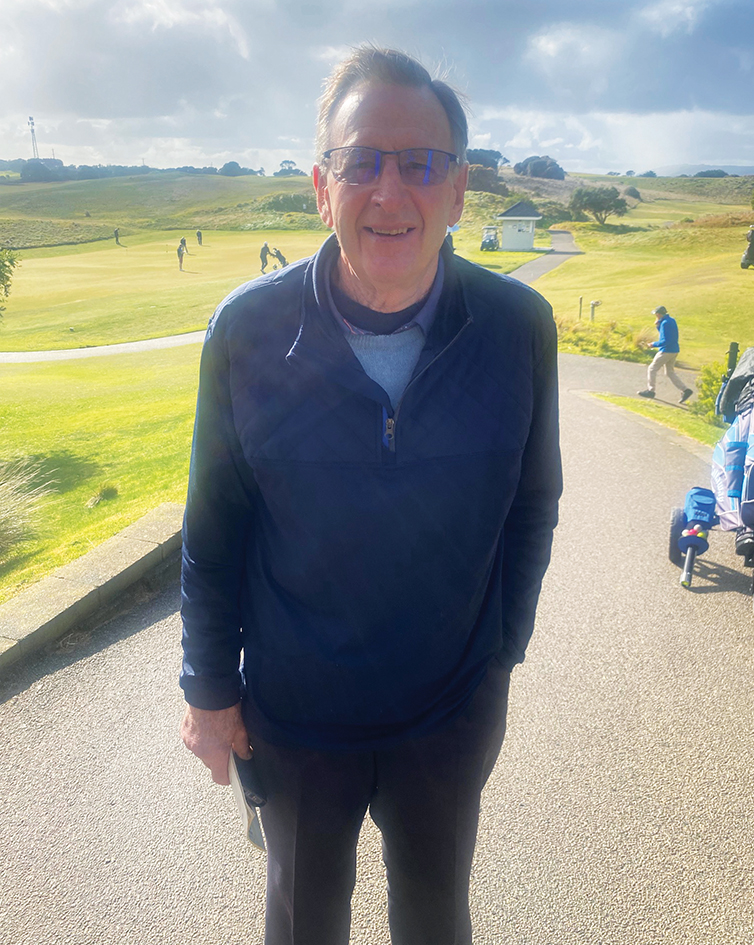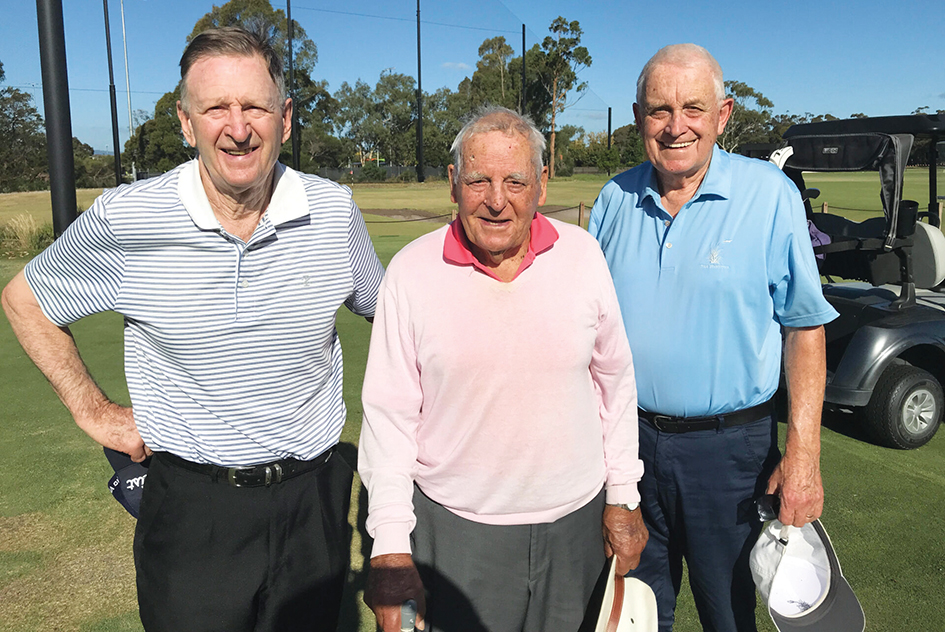
David Good, now 77, the long-serving professional at The Dunes on the Mornington Peninsula.
DAVID Good, the much-loved, long serving professional at the fabulous Dunes course on the Mornington Peninsula didn’t realise it at the time, but he may have well been a witness to history back in 1976.
“Greg Norman has just won a tournament, and I was travelling from Adelaide with him and (the late expatriate English professional) Guy Wolstenholme had said we could stay with him while we all played an event in Melbourne.
“In the days leading up to the tournament, Kerry Packer telephoned Greg and invited him to a World Series Cricket match between Australia and the West Indies at AFL Park in Waverley.”
Norman asked the business tycoon, who had just changed the face of cricket by starting the renegade competition, if he could bring Good along.
“For most of the game Greg and Kerry were locked in conversation one-on-one. With hindsight, I reckon that’s when Packer sowed the seed of a world golf circuit.”
The world tour – a constant hobby horse of Norman’s – almost got off the ground in the 1990’s before floundering.
Thirty or so years later, the Shark became the face of new LIV circuit which has split the game down the middle philosophically, emotionally and physically since its inception.
Good, now, 77, a man who has been in golf for over 50 years as a tour player and winner, business man and teaching professional, reckons the Shark was on the right track all those years ago.
He says all the bickering and posturing when it comes to LIV has a simple solution.
“It should be like the Formula One (motor racing) circuit,” he says. “There should be 10 or 12 LIV events in different countries. People can play in them without fear or favour. And the rest of the golf world can continue to do their own thing.”
Good’s time in the game also qualifies him to have respected and forthright opinions on two other facets of the game which annoy him.
He realises he’s not the first to think of it, but in his view, professionals should be compelled to use a golf ball which does not travel as far.
“Amateurs can still use the current ball,” he reasons.
Good also dislikes the ‘broomstick’ putter. The regular-sized putter in his bag now was manufactured in 1978.
“I just don’t like the long putter even though I have used it at times. How many tournaments would Tom Watson have won with a long putter? But he never succumbed. He was a traditionalist.”
Good can still play and recently shot 72 at the Dunes “and probably left a couple out there” – not too bad for a bloke aged 77 who has undergone multiple heart operations – the first in his early 50’s. “Blokes tend not to worry but we should all get regular health checks,” he says.
We’ re chatting beside the fire in the wonderful Dunes clubhouse.
“I love this place. It’s a home away from home,” he says.

From left, David Good, with Brian Twite and Peter Stickley.
He knows everybody here by first name, a skill taught him by his dad when a teenaged David worked in the family’s shoe store.
Good learnt the game on the nine-hole course in his home town of Ulverstone on the rugged north coast of Tasmania.
But he was good at Australian football, too, playing centre half forward for Tassie in and under age national carnival. One of his team-mates was Richmond legend, Royce Hart. Bob Shearer was playing for championship winner, Victoria.
Good was top qualifier for the Australian amateur in the late 1960’s and turned pro in the following year. He was forced to take a club job after five years on tour.
“I had three young kids to support and prize money for Australian Open was $2000 – not for the winner, in total!”
He won a handful of events including beating Seve Ballesteros in a play-off for the NZ Open.
The good money flowed in Europe on the seniors’ tour.
“Europe was good for me. The pound was worth triple the Australian dollar.
“I’ve done it all in golf – I’ve made some money, not a fortune.
“I’ve had my highs and lows, but I’d do it all again.”




